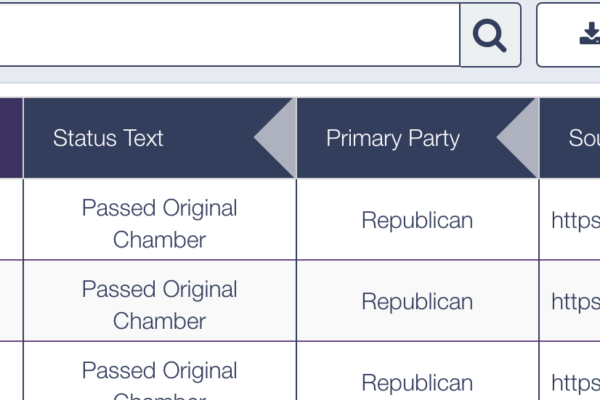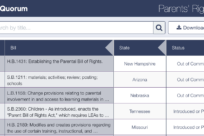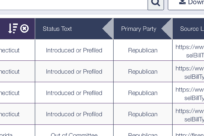Parents’ rights bills continue to circulate through state legislatures this year, with many once again focusing on parents’ right to know what their children are learning in classrooms, particularly around issues of race and gender.
FutureEd has identified 62 parental-rights bills in 24 states that have been introduced or pre-filed so far this legislative season, mostly by Republican lawmakers. Last year, 85 bills were introduced in 26 states. Six bills were signed into law—two in Florida, two in Arizona and one in Georgia and Louisiana. Those laws expanded public transparency of what students are taught; the majority of the 2023 legislative proposals would do the same, part of a broader Republican effort to give parents greater influence over their children’s education that includes using public funds to send their children to private schools.
Missouri’s SB 451, for example, would ensure parents have access to school curricula, guest lecturer materials, and staff training manuals at least 30 days before the start of the semester they are taught. (Another Missouri bill, HB 4, would require schools to provide curricula to parents within two days of a request.)
Parents would also be able to opt their child out of any classroom instruction or presentation with which the parent disagrees. And the legislation specifically addresses the teaching of race and racism, as did many of the 2022 legislative initiatives. It would prohibit schools from teaching that “individuals, by virtue of their race, ethnicity, color, or national origin, bear collective guilt and are inherently responsible for actions committed in the past by other members of the same race, ethnicity, color, or national origin.”
Many of the 2023 parents’ rights bills focus on gender and sexuality, a year after the passage Florida’s high-profile 2022 “Don’t Say Gay” law.
Iowa’s SF 496 and companion bills would require a parent’s written consent before teachers or other school personnel could address their child using a name (beyond a reasonable nickname) or a pronoun other than the name or gender under which they are enrolled in school. The bill would also require districts to notify a parent if any school employee believes the student expresses a “gender identity that is different than the biological sex.”
Under Texas’ SB 393, schools would be required to notify parents if their child’s “perception” of their biological sex is “inconsistent with the student’s biological sex as determined by the student’s sex organs, chromosomes, and endogenous hormone profile.” The bill would require parental consent before participating in a “club that promotes themes of sexuality, gender, or gender identity” and would ban all instruction related to sexual orientation and gender identity.
A bill in New Hampshire, SB 272, would require parent notification if their child is being referred to by a name or gender other than their given name or gender, or if any school personnel are “proceeding with any intervention to affirm or to provide an accommodation of a child’s asserted gender identity.”
Bipartisan-sponsored legislation introduced in Massachusetts, HD 2536, in addition to outlining parents’ rights, would ban instruction related to gender identity and sexual orientation for K-3 students.
And some of the bills would come down hard on schools that don’t comply with these demands. Under New Hampshire’s HB 10, any certified teacher who violates any part of the parental-rights bill would have their teaching credentials suspended for at least one year for the first offense or employment terminated for multiple offenses. All other school employees would be placed on unpaid leave for the remainder of the school year for the first offense or have employment terminated for multiple offenses. Any contractor or third party employed by the school would be fined $2,500 for the first offense and $5,000 plus permanent restriction for additional offenses.
But the new parent-rights legislation doesn’t focus exclusively on divisive topics. A handful of bills introduced by both Republicans and Democrats reflect the less-contentious perspectives that parents have the right to make decisions regarding their children, should have access to their child’s health and education records, should be able to inquire about issues at school, and should be involved in and informed about their child’s education.
Democratic-sponsored bills in North Carolina, S 74 and H 58, for example, add that parents have the right to know information about the quality of all schools their child is eligible to attend, their child’s performance, nutritional information about school meals, receive timely notification about their child’s health and well-being, and know about all threats to the child’s safety. The bill would also allow a parent to sit in on their child’s class.
As these bills continue to move through the legislative process, the spreadsheet will automatically update to reflect their current status. New bills will also be added as they are introduced.



